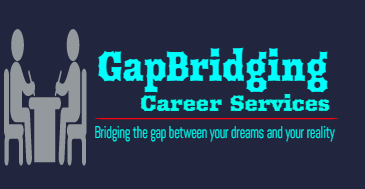Are you stuck up on a job?
Everyone loves a career move, especially when it is rewarding in terms a better pay or a higher role. However, the process of achieving this is usually not fun – I mean interviews. Yes, typically, you do need to get interviewed to move within, or out of an organization unless you got a promotion.
From personal experience, most people nurse the desire for a move for a very long time without really doing anything about it. Some lack confidence in themselves and may need some reassurance, while others dread interviews. Another category is just too loyal and feels bad at the thought of leaving.
My view
I was a mix and match of categories 2 and 3 until my coach back then made me overcome my fear for interviews . I was haunted by the ghost of interview questions past. My least favorite interview question haunted me each time I thought of a move – “Why do you want to leave your current job, role, employer?” Somewhere in my head I had this guilt feeling whenever that question was asked. My understanding then was that a move was only needed if things are not going well at your current job – wrong!
A few years later I had the opportunity to work work with HR on a one year project that got me involved with the hiring process at my firm then. That question was still not my favorite at the time but I had a different perspective. I felt like the question was to set job seekers up for a fail because 8 out of the 10 times I asked this question the candidates were too honest to their own disadvantage. I also believed at the time that the question was asking the obvious. We all know the reason for moves are typically to get something better (pay, benefits, work environment, boss etc.) Like come on! Okay, that was just me ranting, but the reality is this question is sometimes inevitable.
With years of experience and learning from interview experts, I was able to understand that answering this question requires you to be honest yet tactical. How then do you answer this question without digging your own grave?
Tips on answering the question
- Review the advantages the potential role has over your current role to better understand why you want to move. Itemize the benefits if possible. (examples of things to consider for a lateral move will be commute, more challenges )
- Focus on the benefits from point 1 instead of any negatives that may be driving the move.
Example: While I have had the opportunity to manage 3-4 people in my current role, I believe this role will afford me an opportunity to further explore my leadership skills in managing a bigger team.
- Highlight only the advantages in point 1 that are beneficial to you and your potential employer
Example: I live for authenticity and quality and there is no better place to employ these skills than a company who takes pride in the quality of its delivery
- Be honest but tactical
Example: you can talk about less commute time but don’t be so detailed about how you love the work from home option and how it allows you time with your kids
- Know when you have said enough: For more details on knowing when too much has been said during an interview, read my article on “can talking get excessive on an interview”
Reasons to not feel bad about leaving
While loyalty to an organization is good and can be rewarding, change is also the only constant thing in life. I was listening to American author Tony Robbins in one of his sessions and he highlighted the fact that sometimes successful people are not necessarily fulfilled. Maybe you are that person that meets all deadlines, successfully leads huge complex projects and everyone thinks you are successful. If you don’t feel fulfilled within yourself and you don’t see the prospect within that organization, then it is definitely time to move. Staying in this case in the name of loyalty is basically setting yourself on fire to keep others warm. Note that fulfillment doesn’t have to be as a result of big achievements.
It might also interest you that according to Jobvite Recruiter Nation Survey, 95% of recruiters anticipate more competition for employees and report an average tenure of 1-3 years. Read more on that and how 2017 seems to be job seekers’ market in Jessica Hernandez’s article.
Copyright 2017 | GapBridging Career Services | All Rights Reserved
